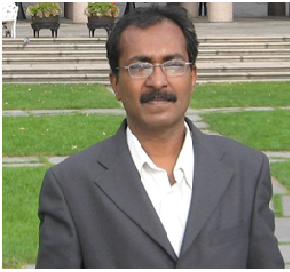UoH Professor Ramdas Rupavath wins global 'Best Teacher' award
By Anusha Puppala
Hyderabad: Professor Ramdas Rupavath of the University of Hyderabad has been conferred the 'Best Teacher' award for 2019 by the International School Awards (ISA), Dubai. Prof Ramdas, who hails from a small hamlet in Telangana, grew up in the 1980s as part of the first generation born in post-colonial Telangana.
The distinguished social scientist is currently working in UoH's Department of Political Science, School of Social Science, and also heads the Centre for Human Rights.
Prof Ramdas pursued his MA, MPhil, and PhD from Jawaharlal Nehru University (JNU), New Delhi. His work is centred around the development of tribal communities with special focus on their social, economic, political, educational and cultural upliftment.
The scholar has developed field experiments that are considered an important methodology – ‘A Perspective from Below’ – to explore the relationships between the tribal and the upper communities..
He was recently honoured with the 'Ambedkar Media Award 2019' by Sneha TV for his top academic contribution and role in constructing, redesigning and promoting the ‘Role of Media in Promotion of Bahujans Empowerment’.
Prof Ramdas will receive the ISA honour on December 16 in Dubai (United Arab Emirates) at a grand event that will crown the most talented and brilliant minds globally, in the presence of 1000-plus dignitaries, including over 500 delegates and 30 international speakers.
Research Expertise
Professor Ramdas is known for his innovative ideas and has tried to explore the research gaps that exist among the tribal and minority communities. The solve this roadblock, he developed his own theory – A Perspective from Below – which said that “the expectations from the top-down State-centric provision can have significant impact on the education of all children in India remains evidently a pipe dream”. He invented a 'Rupavath Vicious Circle' that aims at tackling illiteracy among tribals. His theory was also reviewed by prominent experts from highly developed nations, including contributors from the School of Oriental and African Studies, University of London.